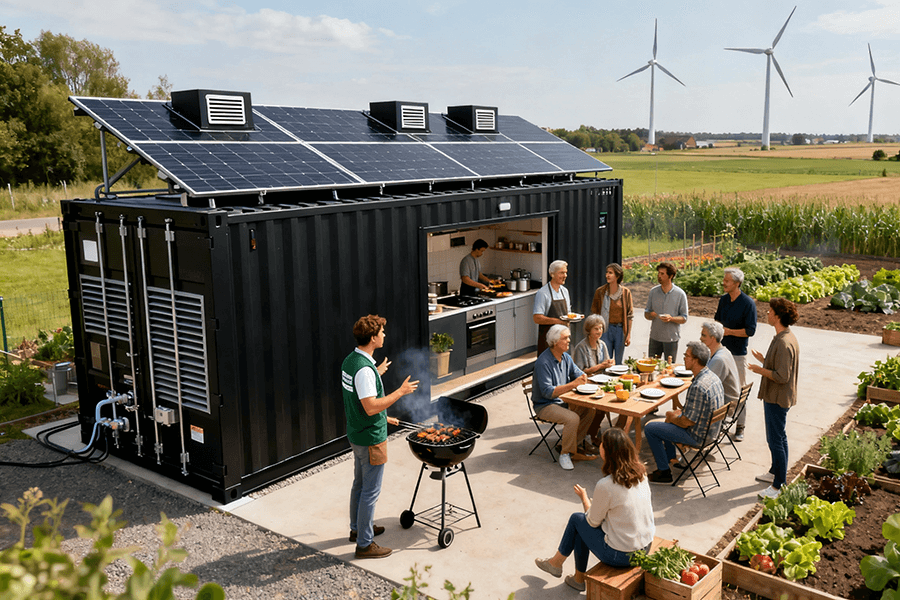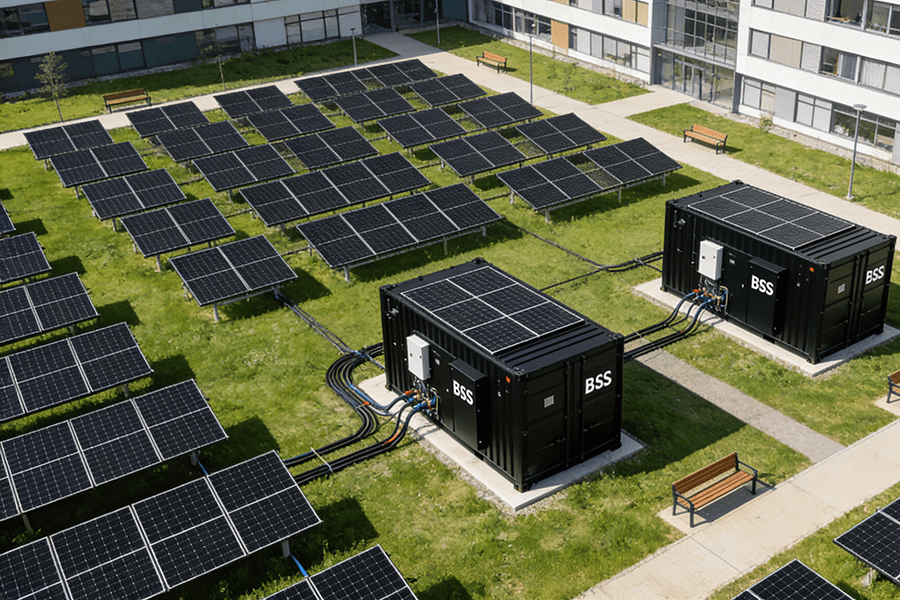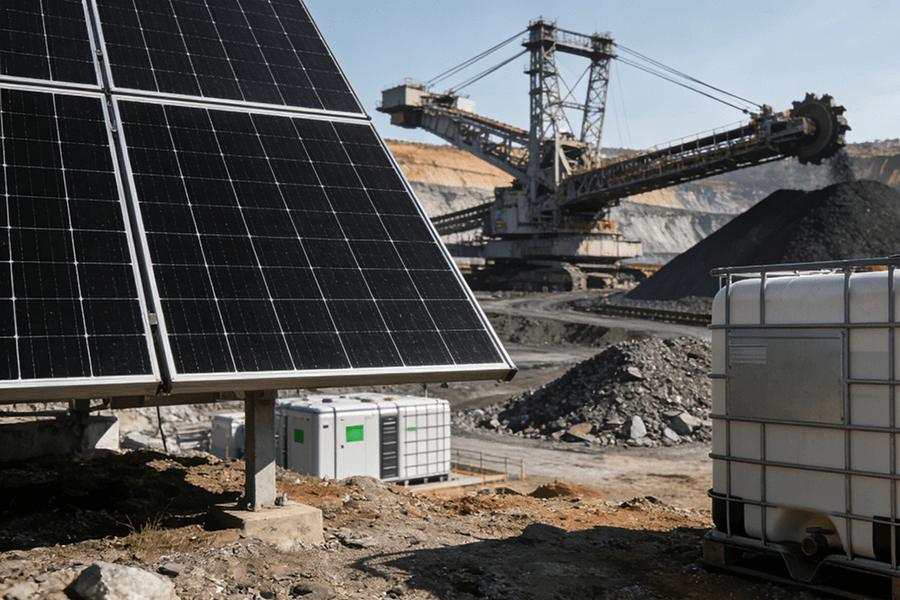
The Hidden Crisis of Grid Outages in Europe’s Shared Kitchens
Europe’s shared kitchen movement is booming. As of 2025, urban centers like Berlin, Paris, Madrid, Amsterdam, and Copenhagen host over 600 community-focused shared kitchens, a 35% increase from 2020 . These spaces aren’t just about cooking—they’re economic engines: 40% of Europe’s new food startups launch from shared kitchens, and 25% of low-income families in major cities rely on them for weekly meal prep .
But there’s a silent threat undermining this progress: unreliable grid power. A 2024 survey by the European Shared Kitchen Association (ESKA) found that 50% of these facilities face weekly power outages, with durations ranging from 30 minutes to 3 hours . The financial toll is staggering:
- A single canceled catering order (common after outages) costs small businesses €2,000+ in lost revenue and customer trust.
- A 30-minute outage can spoil €1,500–€3,000 worth of ingredients (dairy, meat, fresh produce) in walk-in fridges.
- For bakery startups, a 1-hour outage during peak baking can ruin 50–100 loaves of bread—translating to €500–€1,200 in wasted supplies .
Imagine this scenario: Maria, a first-generation baker in Berlin, spends 3 hours prepping dough for her signature sourdough loaves. She loads 80 loaves into the oven at 5 AM, set to bake for 90 minutes at 220°C. At 6:15 AM, the grid cuts out. By 6:45 AM, when power returns, her loaves are charred beyond salvage. For Maria, that’s not just burnt bread—it’s a week’s worth of rent for her kitchen space and groceries for her family.
This is where BESS containers step in. Think of them as a kitchen’s “energy first-aid kit”—portable, scalable, and ready to kick in within milliseconds of a grid outage. But they’re more than just backups: they also cut peak energy costs, integrate with solar panels, and help kitchens qualify for EU funding. In short, BESS containers aren’t just solving a problem—they’re unlocking a new era of resilience for European shared kitchens.
BESS Containers in Action: Keeping Critical Kitchen Gear Running
Shared kitchens rely on three types of equipment that can’t afford downtime: commercial ovens, walk-in refrigerators, and food processors/catering gear. BESS containers are tailored to keep each of these running—no matter what the grid throws at them.
Commercial Ovens & Walk-In Refrigerators: The Backbone of Kitchen Operations
Commercial ovens (used by bakery startups, pizza makers, and pastry chefs) need consistent heat—even a 10°C drop mid-bake can ruin a batch. Walk-in refrigerators, meanwhile, store thousands of euros worth of perishables; a 30-minute outage can raise temperatures above 4°C, making food unsafe to use.
BESS containers eliminate this risk by providing seamless backup power. Unlike traditional generators (which take 10–15 minutes to start and require fuel), BESS systems switch on in less than 200 milliseconds—fast enough that most chefs won’t even notice an outage.
Case Study: Berlin’s KochGemeinschaft Shared Kitchen
In January 2024, a severe winter storm caused a 2-hour grid outage in Berlin’s Neukölln district. KochGemeinschaft, which hosts 5 bakery startups, had installed a 300kWh BESS container six months earlier. Here’s what happened:
- The BESS system detected the outage at 7:02 AM and activated within 150 milliseconds.
- All 4 commercial ovens (each running at 220°C) continued baking without interruption.
- 3 walk-in fridges maintained a temperature of 2°C throughout the outage.
- Result: 100+ loaves of bread, 50 pastries, and 20 pizza doughs were saved—preventing €15,000 in losses for the 5 startups .
Without the BESS container, the startups would have lost a week’s worth of revenue and potentially their rental spots (many shared kitchens charge penalties for wasted space due to outages). Instead, they fulfilled all their weekend orders and even gained new customers from the local press coverage of their “storm-proof” operation.
Food Processors & Catering Gear: Saving Events (and Reputations)
For caterers and meal-prep services, outages are even more damaging—they don’t just waste ingredients; they ruin events. A caterer hired for a wedding, for example, might have 500 meals prepped and ready to heat—only to lose power 2 hours before guests arrive.
Food processors, blenders, and catering warmers (which keep food at 60°C+ to meet safety standards) all rely on steady power. BESS containers ensure these tools stay online—even during extended outages.
Case Study: Madrid’s Cocina Comunitaria Latina
Cocina Comunitaria Latina is a shared kitchen in Madrid that serves 12 caterers, most of whom specialize in Latin American wedding and party food. In March 2025, a grid failure caused a 1.5-hour outage at 11:00 AM—right when one caterer was heating 300 servings of paella, empanadas, and flan for a 2:00 PM wedding.
Thanks to their 250kWh BESS container, the caterer’s warmers stayed on, and the food remained safe. The wedding went ahead as planned, and the caterer not only kept the €8,000 order but also received referrals from the happy bride and groom.
Before installing the BESS container, Cocina Comunitaria Latina had lost 3 major catering orders in 2023 due to outages—costing their users over €24,000 in total and driving 2 caterers to switch to a more expensive kitchen with backup power. Today, their caterer retention rate is 100%, and they’ve added 5 new caterers since 2024 .
Beyond Backup: BESS Containers as Cost-Saving & Sustainability Tools
BESS containers aren’t just crisis managers—they’re also financial wizards and sustainability champions. By reducing peak energy costs and integrating with solar power, they help shared kitchens save money, lower their carbon footprint, and pass benefits to users (like lower rental fees or free access for low-income families).
Peak Shaving: Cutting the Grid’s “Rush-Hour” Premium
Shared kitchens are busiest between 8 AM and 8 PM, when most chefs and caterers are prepping orders. During this time, oven use alone can spike power demand by 40% compared to off-peak hours (10 PM–6 AM) . Grid companies charge a premium for peak usage—sometimes 2–3 times more per kWh than off-peak rates.
This is where “peak shaving” comes in. BESS containers store energy during off-peak hours (when prices are low) and release it during peak hours (when prices are high). This reduces the kitchen’s reliance on expensive grid power—and slashes monthly energy bills.
Case Study: Amsterdam’s EetHaven Shared Kitchen
EetHaven is a large shared kitchen in Amsterdam that hosts 15 startups and 8 caterers. In 2023, they installed a 280kWh BESS container to tackle their high peak energy costs. The results, tracked over 12 months, were impressive:
|
Metric
|
Before BESS (2023)
|
After BESS (2024)
|
Impact
|
|
Peak Demand (8 AM–8 PM)
|
140kW
|
95kW
|
32% reduction in peak usage
|
|
Off-Peak Demand (10 PM–6 AM)
|
60kW
|
75kW
|
Slight increase (due to BESS charging)
|
|
Annual Energy Cost
|
€22,500
|
€15,300
|
€7,200 in annual savings
|
|
User Rental Fees
|
€15/hour
|
€13/hour
|
Savings passed to users (13% lower fees)
|
|
Carbon Emissions
|
18 tons/year
|
12 tons/year
|
33% reduction (due to lower grid reliance)
|
Source: Maxbo Solar Client Success Metrics 2025
For EetHaven’s users, the savings were game-changing. A small meal-prep service that rents the kitchen 40 hours/month saw their monthly costs drop from €600 to €520—a €960 annual savings they used to hire an additional staff member. For the kitchen itself, the BESS container paid for itself in just 3.5 years .
Solar + BESS: Creating Self-Sustaining, Inclusive Kitchens
Pairing BESS containers with rooftop solar panels takes sustainability and inclusivity to the next level. Solar panels generate free, clean energy during the day, but excess power is often wasted if it can’t be stored. BESS containers solve this by storing surplus solar energy—allowing kitchens to use it at night or during cloudy days.
The result? Lower operating costs, which many shared kitchens pass on to vulnerable communities by offering free or discounted access to low-income families.
Case Study: Copenhagen’s SolKøkken (Solar Kitchen)
SolKøkken (Danish for “Solar Kitchen”) is a community-focused shared kitchen in Copenhagen that prioritizes accessibility for low-income households. In 2023, they installed a 200kW rooftop solar system paired with a 300kWh BESS container. Here’s how it transformed their operation:
- The solar system generates 250,000 kWh of energy annually—enough to power 70% of the kitchen’s needs.
- The BESS container stores excess solar energy (about 80,000 kWh/year) for use during evenings and cloudy days.
- Operating costs dropped by €12,000/year, which SolKøkken used to offer 10 free monthly hours of kitchen access to low-income families.
In 2024, SolKøkken served 120 low-income families through this program. For a single parent like Lars (who has two kids and works two jobs), the free hours mean he can prep 15–20 meals weekly—saving €60/month on takeout and grocery costs. “Before SolKøkken, I was eating frozen pizza every night because I didn’t have time to cook at home,” Lars said. “Now I make healthy meals for my kids—and I even started selling my homemade granola at the local market.”
BESS Containers: Building Stronger Communities & Meeting EU Standards
BESS containers aren’t just about power—they’re about building stronger, more inclusive communities. They help food startups grow, make shared kitchens more accessible to low-income families, and ensure compliance with the EU’s “Food Inclusivity” initiative.
Supporting Food Startup Growth: Reliability = Confidence
Food startups are risky enough without adding grid outages to the mix. A 2024 survey of 200 European food entrepreneurs (conducted by ESKA) found that 70% prioritize shared kitchens with backup power when choosing a workspace. Why? Because reliability means they can meet deadlines, avoid wasted supplies, and build trust with customers.
BESS containers give startups this confidence—and the data shows it pays off.
Case Study: Paris’s La Cuisine Collective
La Cuisine Collective is a shared kitchen in Paris that focuses on supporting female and immigrant food entrepreneurs. In 2023, they installed a 220kWh BESS container after losing 3 startups to outages in 2022. The impact was immediate:
- Startup memberships increased by 45% in 2024 (from 28 to 41 startups).
- 3 startups (a plant-based cheese maker, a North African spice company, and a gluten-free bakery) expanded to brick-and-mortar shops—up from 0 in 2023.
- Startup retention rate rose from 65% to 90% (most cited “reliable power” as a key reason for staying).
One of these success stories is Amina, a Moroccan immigrant who started a small business making traditional harissa and preserved lemons at La Cuisine Collective. “Before the BESS container, I lost two big orders because of outages—one to a local restaurant and one to a grocery chain,” Amina said. “Now I can promise my customers I’ll deliver on time, and that’s helped me grow. This year, I opened my own shop in the 10th arrondissement—and I hire two other immigrant women to help me.”
Meeting EU “Food Inclusivity” Standards: Compliance = Funding
The EU’s Food 2030 initiative is a €10 billion program aimed at making food systems more sustainable, inclusive, and resilient . A key part of this initiative is supporting shared kitchens that meet two criteria:
- They offer affordable or free access to low-income families.
- They use renewable energy (like solar) to reduce carbon emissions.
BESS containers help shared kitchens meet both criteria—and qualify for EU funding.
Case Study: Lisbon’s Mesa Comum Shared Kitchen
Mesa Comum is a shared kitchen in Lisbon that serves low-income families in the city’s Alfama district. In 2023, they installed a 250kWh BESS container to pair with their existing 150kW solar system. This upgrade helped them meet the EU’s Food 2030 standards—and earn €50,000 in EU funding in 2024.
They used the funding to:
- Add 4 new commercial ovens (doubling their cooking capacity).
- Offer 15 free monthly hours of access to low-income families (up from 5 hours).
- Hire a part-time nutritionist to teach free cooking classes for families with young children.
In 2024, Mesa Comum served 50 more low-income families monthly (up from 120 to 170) and taught 24 cooking classes—helping families learn to make healthy, affordable meals on a budget. “The EU funding and BESS container have transformed our kitchen,” said Carlos, the kitchen’s manager. “We’re not just a place to cook anymore—we’re a community hub. Families come here to cook, learn, and connect—and that’s what food inclusivity is all about.”
Why Maxbo Solar BESS Containers Are the Right Choice for European Shared Kitchens
At Maxbo Solar, we don’t just sell BESS containers—we design solutions specifically for European shared kitchens. We understand the unique challenges these hubs face: tight budgets, varying space constraints, harsh weather (from Berlin’s -20°C winters to Madrid’s 50°C summers), and the need to balance reliability with sustainability.
Here’s why over 23 European shared kitchens have chosen Maxbo Solar since 2024:
Scalable Power: From Small Kitchens to Large Hubs
Not all shared kitchens are the same—some are small (5–10 users) and some are large (30+ users). Our BESS containers are scalable to fit any size:
- Small kitchens (5–10 users): 50kWh–100kWh containers (ideal for 1–2 ovens and 1 walk-in fridge).
- Medium kitchens (10–20 users): 150kWh–300kWh containers (fits 3–4 ovens, 2–3 fridges, and food processors).
- Large kitchens (20+ users): 350kWh–5MWh containers (for 5+ ovens, multiple fridges, and catering gear).
We also offer **modular






